When the ugly duckling turns into a black swan, can't we quietly enjoy a ballet...
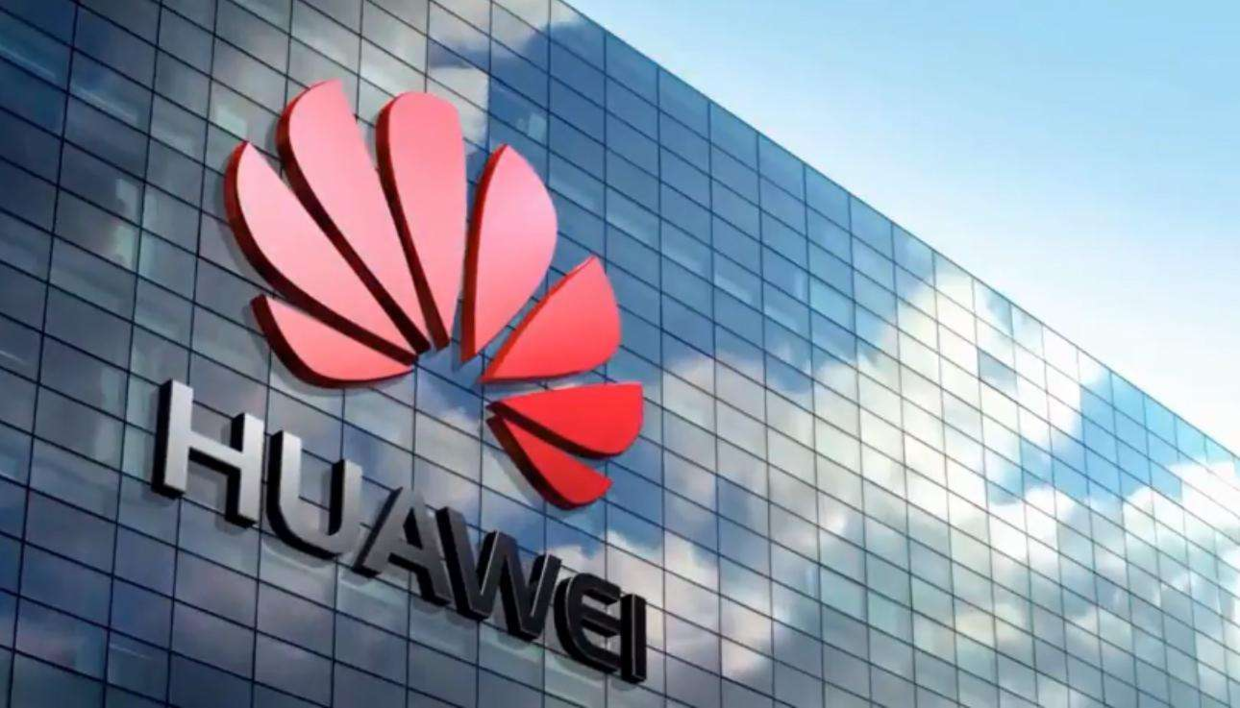
When everyone was immersed in the false boom of snapping up the iPhone 11, Cook was busy patching for innovation. Who still remembers Samsung's Galaxy Note10 21 days ago?
"I came first".
It is somewhat harsh to say that it is false. After all, the first order volume of the iPhone 11 series in the world is expected to be about 8 million units, only 10% less than when the iPhone X went on sale last year. However, it is also true that the iPhone 11 handed in a white roll in the first year of 5G.
It is said that Cook patched because it took 100 minutes to "innovate", but we still did not understand the meaning until Cook redefined innovation with the sentence "Innovation is not necessarily change, but to do better"; How "skilled" is Cook to express impeccable?
Is this 100-minute watch meaningless?
Of course, people who can still stay up late to watch the Apple conference so far are estimated to be extinct!
However, if you spit bad, you will not be soft on the people who should buy it.
This is not true. The iPhone 11 is being snapped up in an endless stream, and the night green is being snapped up; it's just that without the help of the scalpers, this wave of Amway comes and goes faster.
Not to mention the intention of the iPhone to destroy the full screen with bangs and then to destroy the aesthetic feeling of the back cover of the mobile phone with three cameras, and the intention of the ultra-wideband (UWB) technology U1 space perception chip on the iPhone 11. A little bit of reason can find that the iPhone 11 was probably only the theme of the press conference "By innovation only" at the moment when it was closest to innovation ".
Compared with Apple's habitual sigh, the problem encountered by Samsung, the other pole of the world, is not as simple as the collapse of human beings?
Apple is fine, but it doesn't "struggle" or "work hard" in its comfort zone ".
Samsung is still touched by only itself no matter what efforts it makes: four different Galaxy S10, four Galaxy Note 10 and the upcoming two Galaxy Folds. The luxurious lineup of the ten flagship machines is still in the sea. Apart from a few old soft articles and a few websites whose buttocks determine the head, this wave of operation is simply suffocating.
The latter gradually changes color, 5G, folding screen should have everything; The former is still an iridescent color, 5G has to wait, folding screen is currently only a patent.
However, Apple, which was originally high above the ground, could not stop it from lowering its price and reducing its expected value to enlarge its cost performance. As for Samsung, it has done everything it should do, and even turned it into a "KlaytnPhone" built-in encrypted wallet and block chain application for sale, but its prospect is still worrying.
Especially for the Chinese market, what is the significance of these two sets of innovations besides visual changes?
Samsung's persistent decadence and Apple's intermittent recovery will leave only Huawei Mate to save 2019's mobile phone market in the second half of the year.
I know that there are still many people who miss Samsung's machine emperor and look forward to Apple's ecology. But today, it is necessary for us to recognize the reality that Samsung's ten models are flagship, that is to say, none of them "can play". However, Apple left innovation and aesthetics, leaving only the bottom line that price can be refreshed repeatedly.
And this is the difference between Huawei and them?
The difference between Huawei and Samsung is that although Huawei and Samsung are giants that do not rely on mobile phones, Huawei's format is more concentrated in the communications industry, while in the mobile phone field, Huawei is distinct from glory. Its series of brands still play "farming mode" for different segments of the population ".
The difference between Huawei and Apple is that one is busy expanding the software ecology and the other is focusing on the hardware ecology. However, they hardly have any big names. Apple is really "poor" for a while, and Huawei is still holding a miniature nuclear bomb.
Of course, the biggest difference between Huawei and Samsung and Apple is:
Although the entire smartphone market has reached an inflection point and Samsung and Apple have no access to it, Huawei still has a chance to attack the market on chips and systems.
Moreover, in the coming era of Internet of Everything, Samsung has bet on 5G and Apple has made up five major systems. However, Huawei can also enter iOT in all fields such as 5G, chips, systems and intelligent hardware.
Back to Mate 30, Galaxy Note 10 and iPhone 11, these three Huawei, Samsung and Apple are betting on future phones. Although it is not because of a press conference that their respective prospects can be determined, there is no doubt that the competition between mobile phones is closely related to the "potential" of their brands.
The "victory or defeat" between Huawei, Samsung and Apple can be seen after Mate 30 goes online.
When the stage is ready and the dust of Samsung and Apple settles down, it depends on how Huawei "surprised the four"?
(1)
The rise of an atypical Chinese enterprise?
○
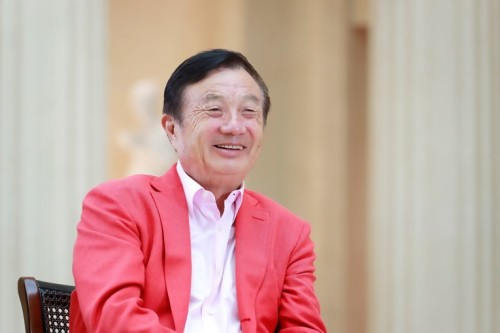
On the occasion of Mate30's listing, apart from prejudice, we might as well take a look at the history of Huawei's development.
I can't tell who is greater than Apple, which was born in the garage in 1976, or Huawei, which was founded in a dilapidated factory in 1987?
However, the iPhone, which was born in 2007, and Huawei, which was in the sky in 2019, each have different meanings of the times.
For individuals, Jobs, who redefined the interaction of smart machines, was naturally unreachable and even deified by fruit powder.
For the country, Ren Zhengfei, who has almost made Chinese manufacturing occupy a place in the global communications industry on his own, naturally plays an important role. It is even more legendary that communication equipment, communication standards, chips and systems are no longer constrained.
Compared with Jobs' personal charm, distortion of reality and the myth that he created and saved Apple, Ren Zhengfei's resume is obviously much lower-key. He did not catch up with Silicon Valley, did not meet Buddhism, and did not mediate with those who shine in the history of science and technology. He was born in a poor mountain village in Anshun, Guizhou Province, in 1963, he studied at Chongqing Institute of Architecture and Engineering, enlisted in the army in 1974 to become an infrastructure engineer, and resigned from Nanyou in 1987 to raise 21000 yuan to establish Huawei.
In the early days of its establishment, Huawei obtained the first pot of gold by acting as a program-controlled switch for a company in Hong Kong.
In 1992, Ren Zheng put all his eggs in the research and development of switches after returning from the United States.
In 1993, the price of the C & C08 switch successfully developed by Huawei was 2/3 lower than that of similar foreign products, which fired the first shot of the revolution.
In 1995, Huawei's turnover was 1.5 billion yuan, but compared with the international telecommunications giants, it was only a drop in the bucket.
In 1996, Huawei cooperated with Hutchison Telecom, a subsidiary of Li Ka-shing, and went out of the mainland for the first time.
In 1997, NEC, Siemens, Alcatel and other international giants withdrew one after another. Huawei took advantage of the opportunity to enter Russia and began to internationalize, and at the end of the year spent 2 billion to learn from IBM.
In 1998, Huawei tried to develop the Latin American market along China's diplomatic route of "supporting corporate brands with national brands.
In 1999, Huawei entered Thailand, with the tenet of "good quality, low price and good service", and has a relatively good reputation in Thailand.
In 2001, Huawei started from the entry of 10G SDH optical network products into Germany, and cooperated with local famous agents to enter developed countries such as Germany, France, Spain, and the United Kingdom.
In 2003, due to the departure of Li Yinan and others, competition in the international market intensified (Cisco sued Huawei and Huawei for infringement of its intellectual property rights), coupled with the failure of betting on CDMA, Ren Zhengfei once negotiated with Motorola to sell Huawei for 7.5 billion US dollars.
In 2004, Huawei Terminal Company was formally established, and the independent research and development department of Haisi Semiconductor began to develop its own chips.
In 2005, Huawei obtained production qualifications and successively established joint ventures with Siemens and other telecommunications companies, accelerating the process of internationalization.
In 2006, Huawei was willing to "become" Vodafone foundry and seize the opportunity of 3G.
In 2007, Huawei made a breakthrough in its business after investing heavily in the NGN project that Singapore Telecom was preparing to launch.
In 2008, Huawei's fourth-generation base station came out, and its technical advantages were too obvious, which established the dominant position of wireless in one fell swoop.
In 2009, Huawei took the lead in releasing a 100G communication transmission solution. In the same year, the first Android smartphone caught up with the rise of Apple and HTC. Ren Zhengfei once wanted to sell his mobile phone business.
In 2010, Huawei surpassed the telecommunications giant Siemens to become the world's second largest communication equipment supplier.
In 2011, iOS and Android were very successful. Huawei realized the potential of the mobile phone market and began to make mobile phones for consumers instead of operators. At the end of the year, an article revealed Huawei's joint-stock system and the establishment of a CEO rotation system.
In 2012, Huawei took out 12.5 billion yuan from 15.4 billion yuan as the year-end bonus, 150,000 the average year-end bonus of Huawei employees can reach 83,300 yuan!
In 2013, Huawei established a glorious brand with the technology brand as the starting point, focusing on trend design and extreme performance.
In 2014, after 12 years of research and development of ASIC chips, Haisi released Kirin 910 chips. In the same year, Mate 7 became the first choice for a large number of domestic government and enterprise dignitaries because of the design mistakes of Apple's "porn photo door" and Samsung Note4.
In 2015, Huawei's mobile phone shipments exceeded 0.1 billion units, ranking among the top three in the world in market share.
In 2017, Huawei & Glory firmly occupied the first position in domestic mobile phone shipments, of which Glory accounted for more than 60%.
In 2018, Huawei gave low-cost housing to employees working in Dongguan at the beginning of the year. In March, it announced that Ren Zhengfei would no longer serve as vice chairman and become a member of the board of directors. In the same year, Glory announced that it would completely separate itself from Huawei's system and establish an independent subsidiary.
In January 2019, Huawei was at the forefront of 5G commercialization when it released the 5G baseband chip Baron 5000 before Qualcomm.
In February 2019, Huawei unveiled in Barcelona, with 5G and folding screen solutions stunning the audience.
In August 2019, Huawei released its new microkernel-based distributed operating system Hongmeng OS for all scenarios to the world, and released Hongmeng's first landing product Glory Smart Screen the next day.
In September 2019, Ren Zhengfei said in an interview with The Economist that Huawei is also a world leader in 6G research, and intends to sell Huawei's 5G technology to Western companies in order to create a rival that can compete with Huawei on 5G.
②
A song of ice and fire?
○

The rise of Huawei is a fact that cannot be ignored.
It started to develop its own switch from the "inverted master"; after Hong Kong, which is separated by a strip of water, has tasted the sweetness, it insists on opening up wasteland in Russia and Latin America, which are not favored by European and American telecom giants; after opening up the situation in Southeast Asia, the Middle East, Africa and other regional sub-developed countries, it tries to find a breakthrough point in the markets of developed countries such as Europe and the United States, it took 32 years for Huawei to be at the same level as Apple and Samsung. In 15 years, Haisi has become a "thorn in the eye" of IBM and Intel for 100 years. How can such Huawei not be "awed"?
But it is precisely in this way that Huawei, which has developed a "dragon-lowering eighty palms", has given us too many complicated emotions.
1. Wolf culture
Huawei is an "alien" of Chinese Internet enterprises, which is determined by its culture.
In Ren Zhengfei's eyes, Huawei's cultural gene is "endless". However, in the early fighting with Ericsson, Nokia, Siemens, Alcatel, Lucent, Nortel Network and other 100-year-old enterprises, Huawei would rather lose money than win the project. The "wolf pack" tactics certainly gave Huawei strong vitality, but it also made enemies everywhere at home and abroad.
In recent years, the "wolf culture" has been misinterpreted by many Internet companies, which has caused a lot of resistance to job seekers.
2, 34 years old
In 2017, Huawei had already spread the rumor of "one size fits all at the age of 45". In 2018, the age of 45 disappeared and was replaced by a more radical 40, even 34, who had just got rid of the childishness of college graduates.
After the popular 996 culture, Huawei is once again on the opposite side of the vast number of job seekers.
3. Patriotic thief
I don't know when anti-intellectual remarks such as "if you don't use Huawei, you won't be patriotic" will become popular.
Of course, we know that the word "patriotic thief" is punishable, but after being mixed in some Huawei's "water army" which is difficult to distinguish between true and false, even the serious "pollen" seems to be inferior.
Huawei's bottom line of public opinion is also "lost" at this moment. Even if Ren Zhengfei stressed more than once that Huawei is just a commodity, if you like it, you can use it if you don't like it, don't use it if you don't like it, and don't be linked to politics.
4. p moon gate
There must be no need to say more about Huawei's P month: Samsung's bad screen is not asked, Huawei's P month is known to the world!
The tendency of most domestic evaluation media is chilling.
If you read a few more manuscripts from communication manufacturers, the comments below will show you: what is Huawei being "controlled?
A trivial matter can make up for the end of the world.
5.5G
I believe everyone has heard about the 5G war detonated by Huawei and even the "trade war" between China and the United States.
And what did Huawei do in this "no disaster?
It resisted the pressure to obtain more than 50 5G commercial contracts and shipped more than 200,000 5G base stations. The economic situation and public opinion pressure can be imagined.
6. hongmeng OS
Huawei's self-developed system released under the condition that the system and chip can be disabled in Europe and the United States at any time has already overreacted abroad, but it is still "picking mistakes" in one byte of code at home ".
With this time, isn't the Ark already open source?
7. Kirin 990
The A13 chip on the iPhone 11 series is stronger than Huawei's P30 Pro Kirin 980, which is obvious to all under the unprecedented operation of friends.
However, it is somewhat confusing to compare Samsung's "PPT chip" Exynos 980, which is expected to start mass production by the end of this year, with the Kirin 990, which Huawei released on September 6 and landed on Huawei's Mate 30 series on September 19.
People's apples dare not do this.
In fact, we don't hate people's double standard, because most of the time we are a contradictory individual. However, in Samsung, Apple and Huawei, it must be rare in the world.
Apple said that innovation does not necessarily mean change. You believe it. Huawei has been getting better and better. Why don't you believe it?
Samsung bombed the broken screen of the machine to treat you differently or forgive, Huawei 5G folding you and left to say him?
A little "trivial" must tear out a "bloody", such public opinion is too abnormal.
(3)
The east wind flowers thousands of trees at night?
○
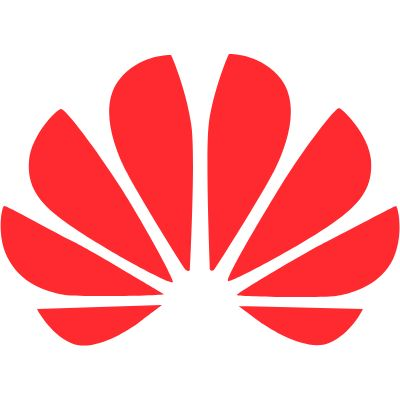
Huawei's own cultural genes, and the values it has adhered to for so many years, give people a sense of distance that "can only be viewed from a distance but not played.
Coupled with its "excessive force" in marketing in recent years, the vertical and horizontal maneuvering in products will inevitably make people grasp the horse's feet.
Therefore, Ren Zhengfei, who has always been low-key, has had to "go on TV" for three days and two ends in recent years ".
Huawei is not unaware of how badly it has been blacked out, but the rhythm cannot stop.
1. Smartphone
On September 8, Yu Chengdong said at the IFA press conference that due to the uncertainty of Google's services, the Huawei P40 released in March next year may be the first mobile phone equipped with Hongmeng system.
On September 9, The Nikkei Asian Review reported that Huawei's upcoming Mate 30, Mate 30 Pro and foldable mobile phone Mate X will not carry any Google applications and services.
On September 17, two days before the September 19 press conference, Huawei's official blog updated the warm-up videos one after another, exposing the main functional selling points of Huawei's Mate 30 series. Following side control and playing with mobile phones from a distance, Huawei's Mate 30 series has three more upgrades and exposures, including: wireless fast charging, ultra-slow motion video and ultra-strong night shooting.
2. Smart TV
Huawei's mobile phones have attracted most of the firepower, and smart TVs have fallen.
Although the Glory Wisdom Screen released on August 10 is somewhat modest, it also has its experimental value as a landing product of Hongmeng OS.
On September 19, it remains to be seen whether Huawei's smart screen, which came on stage as the finale, can take a step up on the shoulder of glory.
3. Smart glasses
On September 13, Huawei and GENTLE MONSTER jointly released smart glasses: SMART EASTMOON-01 and SMART JACKBYE-01. SMART ALIO-01, SMART ALIO-C1 and SMART SOUTHSIDE-01 are officially on sale.
4. Intelligent Headset
On September 6, Huawei's first wireless Bluetooth headset with Kirin A1 chip FreeBuds 3 was launched. And announced on September 14 that it won 11 IFA awards!
5. Smart Watch
Huawei's smart watch HUAWEI WATCH was first released in September 2015.
On September 19, Huawei released the smart watch Watch GT 2, as the first smart watch equipped with Hongmeng OS, and will also carry the Kirin A1 chip developed by Huawei.
6. Huawei Map
On August 10, Huawei revealed its centimeter-level accuracy and Map Kit, a map service only open to overseas developers.
Huawei's map service capability for overseas will open 25 API interfaces in 6 categories, covering more than 150 countries and regions overseas and supporting more than 40 languages. With Map Kit, developers can customize maps and add tags, real-time road and route planning, precise positioning, and AR navigation and tags.
7. huawei AI
On September 12, Huawei released a series of innovative solutions for the energy industry based on 5G and artificial intelligence during the 24th World Energy Conference.
On September 18, Huawei released the world's fastest AI training cluster in the Atlas 900 (consisting of 1024 rising 910) at the fourth full-link conference. It said it would invest US $1.5 billion in the "fertile soil plan" to be released in 2015 to bring together 5 million developers.
In addition, on August 25, Huawei's Hubble Technology invested in Shandong Tianyue, the third-generation semiconductor material company in China (the fourth and only four silicon carbide substrate material mass production enterprises in the world), holding 10% shares.
On September 11, Huawei will issue public bonds for the first time in China, with a 3 billion scale and a term of 3 years.
On September 12, Huawei and Changsha City signed a framework agreement on industrial cooperation between the two sides, the two sides will jointly build the intelligent network connected automobile industry cloud, accelerate the intelligent network connected automobile industry landing.
④
American trap?
○
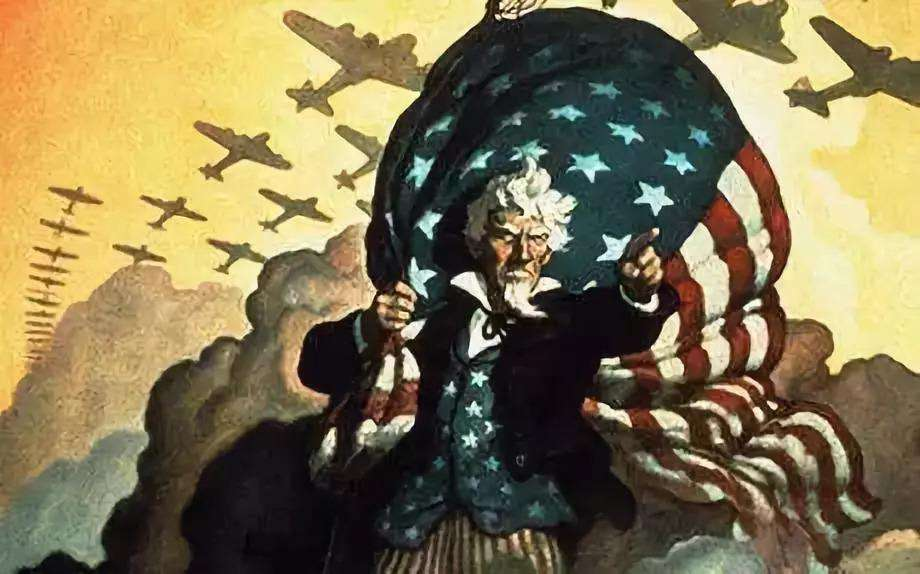
The "outbreak" for two consecutive months is certainly Huawei's response to the "cynicism" along the way. It needs to use practical actions to prove that Huawei's "gradual innovation" is meaningful.
However, such a high-density "outbreak" also reflects Huawei's "anxiety" from the side. Although it has resisted the pressure of the United States and seems to care nothing about everything, the foreign trade war and the domestic public opinion offensive are really true. Can't see Huawei's "healthy" development.
As early as 2012, Ren Zhengfei was alert to being "stuck" by Europe and the United States.
During this period, the U.S. House of Representatives claimed that two Chinese communications companies, Huawei and ZTE, posed a threat to U.S. national security and tried to keep the two Chinese companies out of the U.S. market on unwarranted charges.
Not to mention that the United States has never trusted the communication equipment made by Chinese enterprises, and the long arm jurisdiction will come.
In August 2018, the Australian government first stated that it would prohibit telecommunications equipment manufacturers from China from providing 5G technology to the country's mobile phone operators.
In November, the New Zealand government banned a large telecom operator in the country from using 5G equipment from a Chinese company. Britain and Canada are a little more decent, not banned by the government, but self-examination and self-correction by domestic telecom enterprises.
In December, the Japanese government decided to exclude the products of Chinese communications equipment giants Huawei Technologies and ZTE from the government procurement list.
The "Five Eyes Alliance" encircled it, and Japan added it needless to say.
The United States also instigated the Canadian government to arrest Meng Wanzhou at the end of 2018, and this is only the beginning.
In May 2019, the United States declared a "state of emergency", with a list of entities, an ARM chip supply cut-off, Google suspending some of its business, and IEEE banning Huawei employees from participating in an all-round encirclement and suppression of Huawei.
On May 15, the U.S. Department of Commerce included Huawei and its 68 subsidiaries in the entity list.
On May 20, the U.S. Department of Commerce issued a 90-day "temporary general license" to allow Huawei and its subsidiaries to engage in "specific activities" to ensure the continuous operation of existing related networks in the United States and provide support for existing related mobile services in the United States.
On August 19, the U.S. Department of Commerce decided on the 19th to extend a "temporary general license" for another 90 days. U.S. companies that have obtained the "temporary general license" can export, re-export and transfer "specific" to Huawei and its non-U.S. subsidiaries. And "limited" products or technologies to avoid adverse effects of the ban on American consumers.
Judging from the current situation, the list is likely to take effect in two months.
At that time, Google's Android system will not be able to be used on Huawei's mobile phones, Microsoft's Windows system will not be able to be used on Huawei's computers, and Intel's chips will not be able to support Huawei's 5G operation. Looking up, Huawei is isolated.
The containment of the Five Eyes Alliance has forced Huawei to compromise with the United Kingdom, Germany, India and other countries, willing to sign the so-called "no back door" agreement.
The pressure from the United States is even more endless.
On September 2, the United States and Poland signed a 5G security statement, saying that 5G suppliers would be subject to "a review of whether they are controlled by other governments".
Faced with such a situation, Huawei can do:
First, in April, he released goodwill to Apple and expressed his willingness to consider selling 5G chips to Apple to help it develop the next generation of 5G smartphones.
Second, in May, the spare tire Haisi chip was announced to become a full member, and then the microkernel-based distributed operating system Hongmeng OS and the Ark compiler supporting joint compilation and operation of multiple programming languages and multiple chip platforms were gradually assembled.
Third, in September, it was proposed to sell 5G technology at one time to make competitors.
Huawei's goodwill is obviously ignored by Apple. There is not much controversy over the confirmation of Haisi, but Hongmeng and Ark have a lot of disagreements. As for the sale of 5G technology, it is not impossible, but it is not necessarily willing to accept this olive branch with the disposition of Europe and the United States.
Do you need a reason to destroy you?
⑤
Battle 5G Top?
○
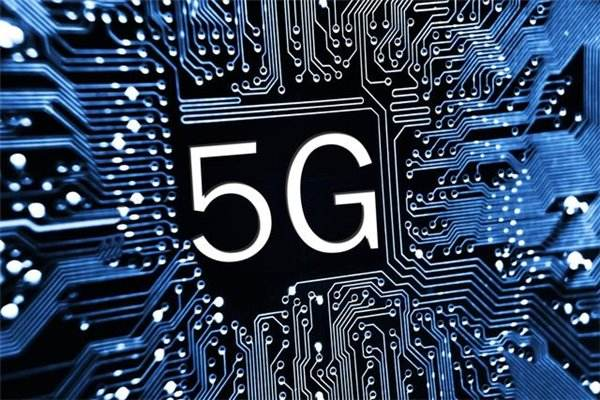
Although Huawei's supply channels have been blocked and US related manufacturers have lost tens of thousands of dollars, who told people to have the absolute right to speak in the 4G era, and they still want to struggle again before 5G is popularized.
After all, idol baggage is not so easy to throw in the towel.
Before 5G is in full swing, the main battlefield we face is the last "champion" battle in the 4G era; this will be a fierce competition about "stock.
Data from GFK, a professional research organization, show that the market shares of Huawei and Glory have surged from the 30.59% in August 2018 to the 37.32% in July 2019, and the sum of the market shares of OPPO and vivo has risen from 34.65% to 37.95%. The market share of the two camps has reached a record 75.27%, with Xiaomi and Apple each 10% or so, and the share of other brands besides the six giants is less than 5%.
Huawei-Glory and OPPO-vivo invade like fire, millet and apple do not move like a mountain, the six giants firmly control the Chinese market, and if they want to enter another point, they must "grab food" from other people's plates ".
It is still unknown whether Huawei & Glory or OPPO & vivo will win or lose. Xiaomi and Apple also have their own values. However, when the high-end Huawei brand has a high potential energy level, the globalization of Xiaomi has a low sales volume in China, and Apple has nothing new, the competition focus in the domestic mobile phone market has quietly become the competition between OPPO, vivo and Glory.
And all three are back in the same high ground: 5G.
Don't you see, glorify Zhao Ming's official announcement V series All in 5G;
Don't you see, OPPO Chen Mingyong is a Qualcomm 5G chip mobile phone;
You can't see, vivo Shen Wei's words are 5G inside and outside.
Huawei, on the other hand, has a lot of feelings.
First: Huawei is isolated
Huawei, Samsung and Apple naturally have nothing to say.
On August 19, several major domestic mobile phone manufacturers realized a rare "great harmony". Xiaomi, OPPO and vivo announced the joint establishment of a "mutual transmission alliance". The three major brands also released microblogs at the same time with tacit understanding. After getting through, the mobile phones of the three manufacturers will support cross-brand file transmission and data migration, and public testing will be started in the near future.
Who do millet, OPPO and vivo swords refer?
It is self-evident.
After the alliance, Xiaomi, OPPO and vivo will become the only spokesmen for the domestic Android ecology. After all, Google no longer plays with Huawei.
Second: Huawei's Enemies
Apple's attitude of "the world is drunk and I wake up alone" is at a respectful distance from 5G.
However, between 5G Huawei and 4G Apple, it is a fact that Apple's generation difference has already occurred.
Although Samsung worked very hard, it could not bear the past and could only follow the horn of the United States.
In China, Huawei's rivals are only Xiaomi, OPPO and vivo. However, after its glorious independence in 2018, Huawei has only rivals and no teammates.
Previously, Huawei, ZTE, Xiaomi and OV all completed 5G connections by carrying 5G plug-in chips.
This time Huawei will face Xiaomi and OPPO allied with Qualcomm and vivo allied with Samsung.
Third: Huawei's weakness
Where is Huawei's weakness?
Is the open source ark not effective?
Or is the core Hongmeng unbearable?
Or is it that Huawei Ecology cannot replace Google and Microsoft?
All these can determine where Huawei is likely to go in the future, but they are not so critical.
Huawei's weakness is that when Huawei faces all internal and external troubles, the core that Huawei can rely on is still Ren Zhengfei.
Although his old man will not consider retirement for the time being, Ren Zong's retirement is inevitable.
Whether Huawei can resist all the pressure from home and abroad and make a smooth transition to the 5G era; Ren Zhengfei's honesty, wisdom, peace, foresight, humility and self-confidence are all crucial.
Just as Cook cannot be the next Jobs, at least until now, Yu Chengdong cannot be the next Ren Zhengfei.

When we were immersed in Apple's "innovation" and complained that 5G was not yet mature, who cared about Huawei's US $4 billion investment in 5G research and development in the past 10 years, 2570 5G patents obtained, and more than 20% of the global market share.
When we were immersed in the sky-high price of Mate X 10,007 in February, when the folding screen was flashy, who cared about the embarrassment that Huawei surpassed Apple in terms of shipments, but could only match it in terms of mobile phone profit distribution.
When we are immersed in the "precocity" of Hongmeng and Ark, who cares about the blocking of China's Internet innovation enterprises in Europe and the United States? Xiaomi, OPPO and vivo can survive, but is it really "cool" to be stuck in their necks?
When we complain that Chinese Internet companies have destroyed the traditional economy, who cares that Huawei has not repeated Lenovo's mistakes but focused on research and development.
When Huawei became a hot topic on the Internet in a short period of time, it was either a hot spot or a superior show. Who remembers that it is still alive?
No one's achievements came from strong winds.
Huawei has seized the straw of 3G and made great efforts in the 4G era. This time, it has launched an uprising in the 5G era, challenging the top-level "right to speak" of the Internet in the European and American markets in the name of Chinese Internet companies in the eyes of the world. What it is and will face is the "malice" of an era ".
We can forgive Apple's arrogance and prejudice and Samsung's differential treatment. Why can't we forgive Huawei's "ambiguous" announcement?
What Huawei lacks most now is not talent, technology or time, but our goodwill towards Huawei!
In China's huge market and in the big environment of Europe and the United States, can't we be a little sober and "care" for an ecology that only belongs to us?
Although the foreign moon is "round", it is not its own after all.
Of course, this kind of care is not pampered, nor is it too spoiled, as long as there is a little patience, more reason, less saliva.
As for the final quality of Mate 30, Mate X and Huawei's next interconnection of everything, please be calm.
After all, we are getting closer and closer to the "virgin land" in the post-Internet era ".
PS: Part of the material comes from @ Tiger Smell

New user?Create an account
Log In Reset your password.
Account existed?Log In
Read and agree to the User Agreement Terms of Use.

Please enter your email to reset your password
At the same price, I still choose Apple because the duration of Macintosh is much better than that of other mobile phones, because Macintosh is not easy to get a card, and other Android machines started to use it for a year.
How much did you charge Huawei? Haha, you said Apple didn't innovate. Do you really know Apple's innovation? You said Apple's mobile phone didn't have 5G, but do you know how many years it will take China to fully cover 5G networks? Do you know the difference between NSA networking and SA networking there are also the most cutting-edge technical reserves, but writing articles should pay attention to objectivity, not blindly praise and criticism, which will mislead consumers to have studied industrial design, at least one should learn to look at the essence through the surface. Please understand the value innovation behind the product before judging it.
Ha, ha, ha, the article came out so fast that it was blocked by Huawei today.
Great
Let's use 4G first, 5G mobile phones are still a little expensive
Apple's era is over, Huawei 5G is up..